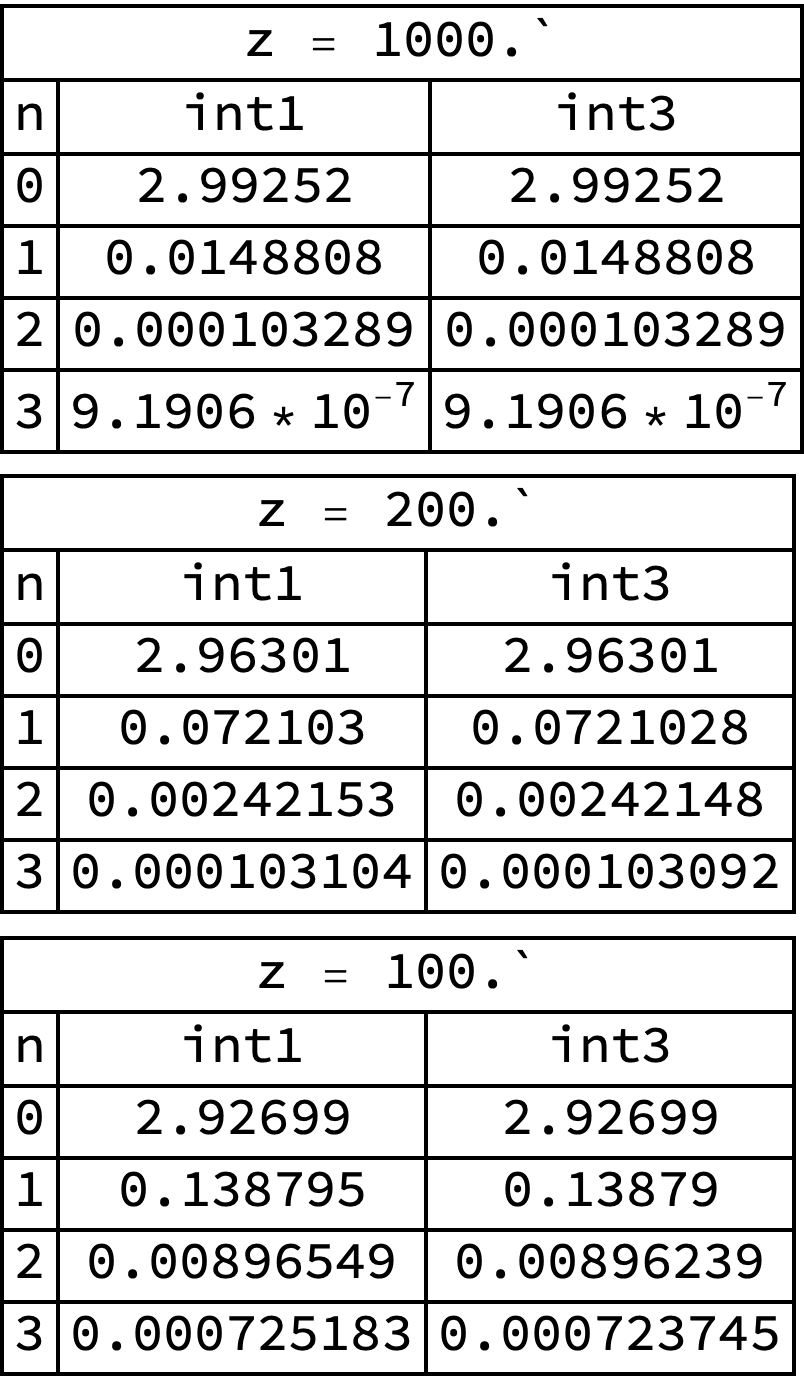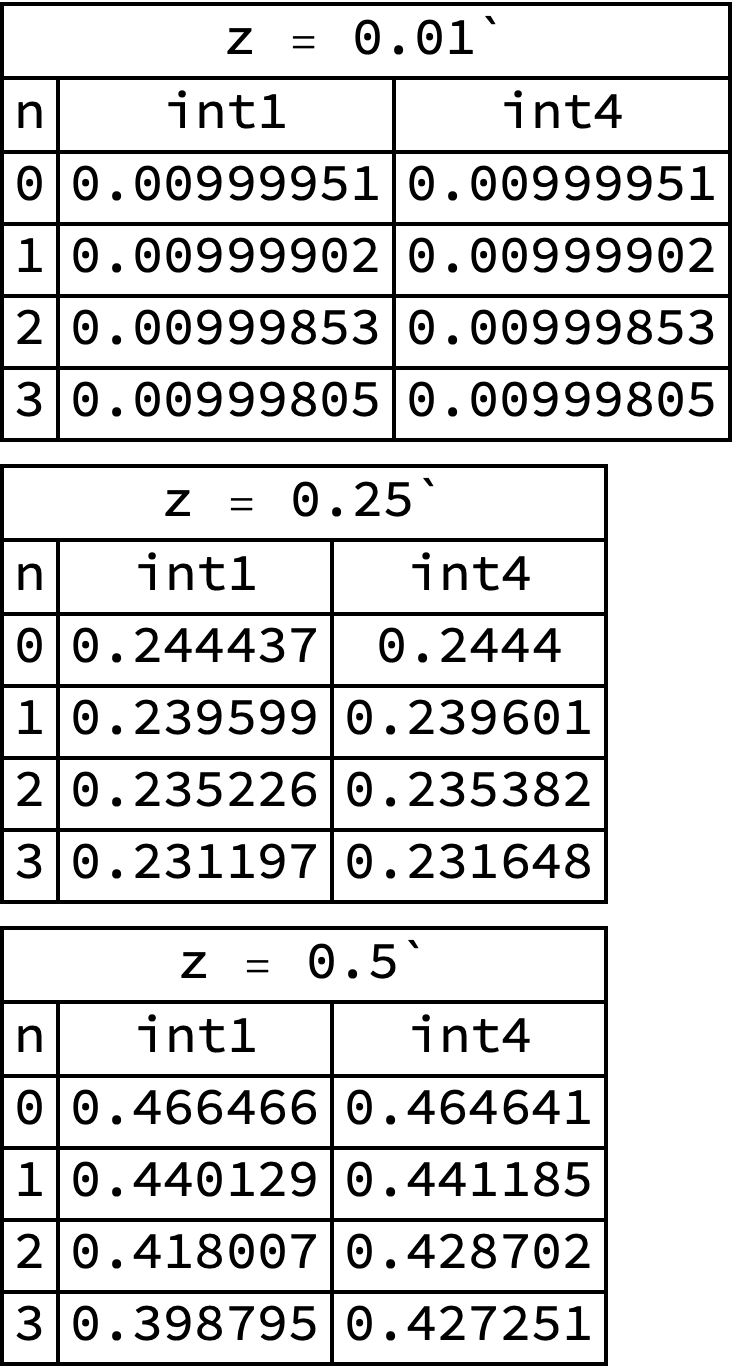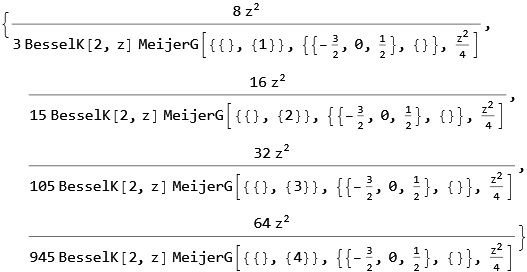I have an integral of general form
$$ i_n(z)=\dfrac{z^2}{K_2(z)}\int_1^{\infty} \dfrac{\left(x^2-1\right)^{n+\frac{3}{2}}}{x^{2n+1}} \exp(-zx) dx $$
$K_2(z)$ is the bessel function and $0.01 \leqslant z\leqslant 1000$.
in[z_]:= Assuming[Re[z]>0,(z^2/BesselK[2,z]) NIntegrate[((x^2-1)^(n+(3/2))/x^(2n+1)) Exp[-z x],{x,1,Infinity},WorkingPrecision -> $MachinePrecision,AccuracyGoal -> 3]]
For reasons of analytical calculation, I would like to get symbolically the first four integrals $i_0$, $i_1$, $i_2$ and $i_3$ but MATHEMATICA does not do this. Do you have an idea please?
(* i0 *)
i0[z_]:= Assuming[Re[z]>0,(z^2/BesselK[2,z]) NIntegrate[((x^2-1)^(3/2)/x) Exp[-z x],{x,1,Infinity},WorkingPrecision -> $MachinePrecision,AccuracyGoal -> 3]]
(* i1 *)
i1[z_]:= Assuming[Re[z]>0,(z^2/BesselK[2,z]) NIntegrate[((x^2-1)^(5/2)/x^3) Exp[-z x],{x,1,Infinity},WorkingPrecision ->$MachinePrecision,AccuracyGoal -> 3]]
(* i2 *)
i2[z_]:= Assuming[Re[z]>0,(z^2/BesselK[2,z]) NIntegrate[((x^2-1)^(7/2)/x^5) Exp[-z x],{x,1,Infinity},WorkingPrecision ->$MachinePrecision,AccuracyGoal -> 3]]
(* i3 *)
i3[z_]:= Assuming[Re[z]>0,(z^2/BesselK[2,z]) NIntegrate[((x^2-1)^(9/2)/x^7) Exp[-z x],{x,1,Infinity},WorkingPrecision ->$MachinePrecision,AccuracyGoal -> 3]]
Alternatively, can these four integrals be expressed numerically as a fite for $z$ values between 0.01 and 1000?
Thank you in advance!





